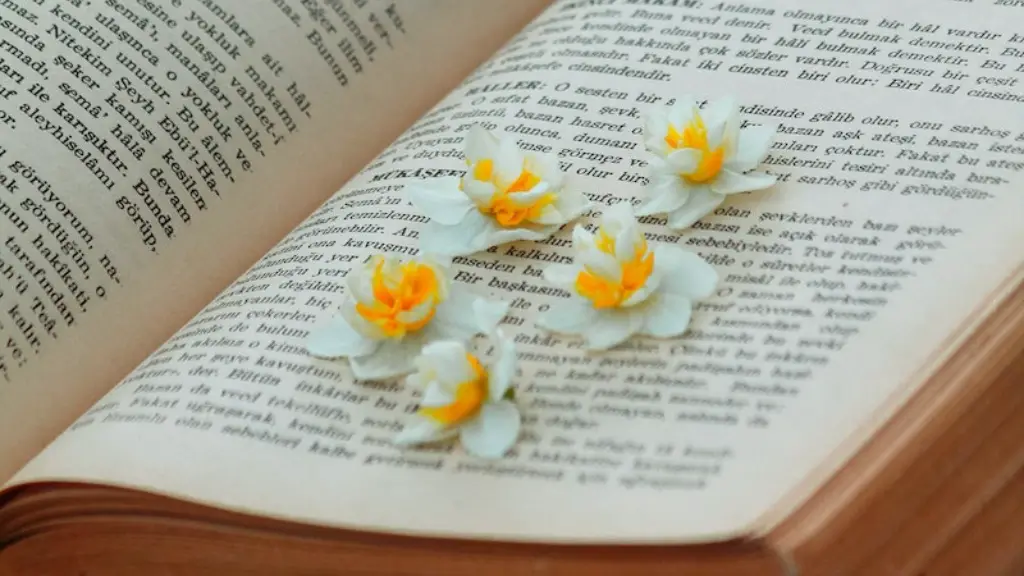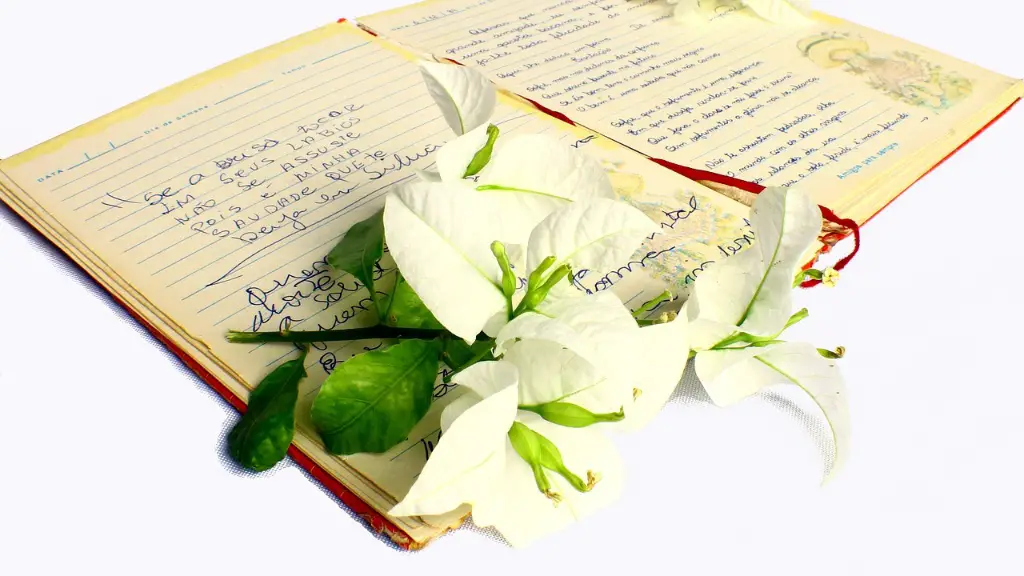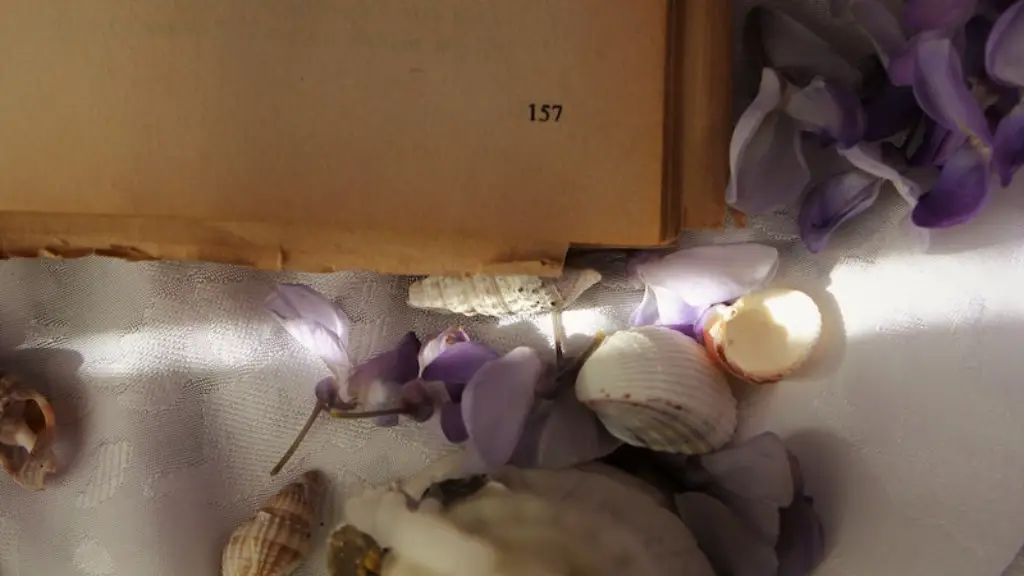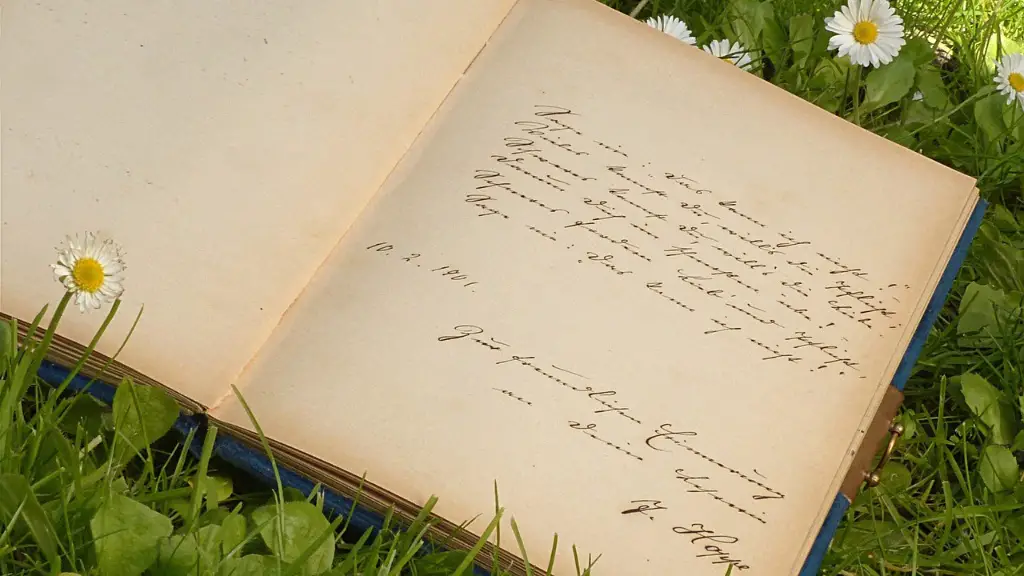Poetry competitions have been around for centuries, but only in the last few decades has it become a popular pastime for aspiring poets. Poetry competitions are a great way for poets to hone their craft and get a measure of their skill as compared to other poets. It’s an opportunity to take part in an event where your verse can be judged and compared against other people’s works, and potentially win awards and notoriety.
In the past, some of the earliest poetry competitions were sponsored by governments and wealthy aristocrats to determine which poet was the most gifted. But today, poetry competitions are held at educational institutions and by literary organizations, and generally focus on particular prose or lyric styles and themes.
The process of entering a poetry competition is relatively straightforward. Usually, poets are required to submit their entries by a certain deadline; often, the competition will have specific guidelines as to what type of poem it is looking for. Some competitions allow poems that contain images or even written responses to another’s work. Most entries are judged anonymously, and a winner is chosen based on the strength, originality, and depth of the poem.
Many organizations offer prizes in addition to critical recognition, such as travel stipends, publication opportunities, and fellowships. Depending on the sponsor, the prizes may range from a few hundred dollars to thousands of dollars. Additionally, winners are often invited to perform their poem at a prestigious public event or read their work in front of a large audience.
There are several organizations that host large poetry competitions. The National Poetry Slam (NPS), for example, is an international event that brings together aspiring poets from all over the world. The NPS provides a platform for poets to hone their craft, collaborate with other poets and speakers, meet industry professionals, and take part in workshops and readings.
The British National Poetry Competition and the Griffin Poetry Prize in Canada are other prominent events, awarding a total cash prize of £5,000 and $65,000 respectively. The prize winners also receive a plaque, a certificate, and an invitation to a ceremony in their honor.
For aspiring poets, these competitions provide a unique opportunity to expand their repertoire, network with other poets and industry professionals, and test their skills against the best. And by entering, aspiring poets have the potential to make their voice heard, gain recognition amongst their peers, and take their career to the next level.
Competition Rules & Regulations
Like any organized event, poetry competitions come with some rules and regulations. Different competitions have different rules and regulations, but some general regulations that almost all competitions have include: all submitted poems must be original and not previously published, lines must not exceed a certain length, and entrants must submit a certain number of poems for consideration.
The judges of the poems will usually consider the following criteria when determining the winner: the poem’s use of language, its accuracy of facts, and its artistic execution. Additionally, some competitions may consider the poem’s impact on the reader.
In order to be considered for a competition, entrants must also adhere to certain guidelines. In most competitions, entrants must include a brief biographical note and a summary of their work curated for the competition. Furthermore, some competitions have specific restrictions as to the type of poem, its length, and the language used.
Aside from these standard regulations, some competitions may have additional requirements. For instance, some competitions may require entrants to proofread their work before submitting it. Others may require multiple entries and the submission of audio files. It is important to thoroughly read the rules and regulations of a competition before submitting any work, to ensure you meet all the criteria for being considered.
How to Prepare for a Poetry Competition
When preparing for a poetry competition, it is important to read the rules and regulations carefully, as well as prepare and refine the poem itself. Preparation for a poetry competition should include brainstorming sessions and research, as well as critiquing and revising the poem. It is also important to practice the poem aloud or in public before the competition is held.
When brainstorming for a poem, it is best to begin with a broad concept and then narrow it down to a specific idea. Identifying the theme of the poem is essential, as well as researching any related topics or current events. Once these initial steps are taken, the poem can then be crafted.
In terms of refining the poem, it is important to review the poem multiple times to ensure it is technically correct and conveys the desired message. The poem should be read aloud and critiqued by other outspoken poets, or even pre-existing competitions, for constructive criticism. After the poem is polished and perfected, the poet can enter it into a competition.
Benefits of Participating in Poetry Competitions
By entering into a poetry competition, poets have the potential to receive recognition, valuable feedback on their work, and even monetary awards. Such awards can be used to further a poet’s craft and help to provide them with the means to pursue their goals.
Poetry competitions can also be an opportunity to network with other poets and literature professionals, which can lead to new connections, collaboration opportunities, and even publication opportunities. It is also an opportunity to gain feedback and gauge one’s progress.
Apart from awards and feedback benefits, poetry competitions provide poets with the opportunity to hone their writing craft in a focused and concentrated manner. Poets must think deeply about their writing and critically reflect upon what they have composed. This process provides the poet with the potential to learn from their own experiences and develop a greater understanding of their writing style.
Overall, poetry competitions can be an invaluable tool for poets to showcase their work, develop their craft, and gain recognition from a wider audience.
Prominent Poetry Competitions Worldwide
Poetry competitions are held in various countries around the world. Some of the more prominent events include the Department of Education’s Poetry Out Loud program in the United States and the UK’s Poetry Society’s National Poetry Competition. Additionally, many universities have their own poetry competitions, such as the Jericho Brown Poetry Prize at Brown University.
Other international poetry competitions include the VanEyck Academie’s International Poetry Contest (Netherlands), the Cork International Poetry Festival (Ireland), the Annual Poetry Contest (Australia), and The Bridport Prize (UK). In addition, international chapters of the Poetry Society, such as the French Poetry Society (Société Française de la Poésie), the Catalan Poetry Society (Societat de Poesia de Catalunya), and the Spanish Poetry Society (Sociedad de Poesia de España) host their own competitions.
Poetry competitions held in the United States are sponsored by both university institutions and nonprofit organizations. These range from the National Poetry Contest, which is hosted by the Academy of American Poets, to Poetry Out Loud and the Science Poetry Award, sponsored by the National Science Foundation.
Tips for Winning a Poetry Competition
Although there are no hard and fast rules for winning a poetry competition, there are some tips to help poets maximize their chances of success. For starters, it is important to maintain a high standard of writing. Good poems are well-crafted, articulate, and use a range of imagery and metaphors. A good poem should also be concise, vivid and creative.
The most successful poets often write about a relatable topic and put forth a unique perspective. All poems are subjective, so it is important to read the poems of past winners and judge what criteria they used to select their winner. Poets should also pay attention to the competition’s guidelines, as some require specific styles or topics.
It is also important to practice the poem aloud before submitting it. Reading it aloud allows poets to identify any inconsistencies, errors, or clumsy wording. Additionally, it helps to have a good understanding of the topic, which can be achieved by researching related websites and reading the works of other successful poets.
Time Management Tips for Poetry Competitions
Time management is an essential part of poetry competitions. With strict deadlines and competition-imposed limits, it is important to plan ahead and prioritize certain tasks over others. This can be done by creating a detailed timeline and setting realistic goals.
At the beginning of the competition, it is best to set aside time for research and brainstorming. During this period, it is important to research any relevant topics, background information, and related news items. Additionally, it is beneficial to collaborate with other poets or critique groups for feedback and guidance.
Once ideas and topics are identified, the poem itself should be created. This step should include revising, editing, and proofreading the poem. It is important to note that this step can take some time, as most competitions have strict requirements and formatting guidelines.
Finally, entries must be submitted before the deadline. In order to make sure this happens, it is important to set reminders and alarms to ensure the poem is sent in on time. Overall, managing time effectively is essential for maximizing a poet’s chances at succeeding in a poetry competition.





